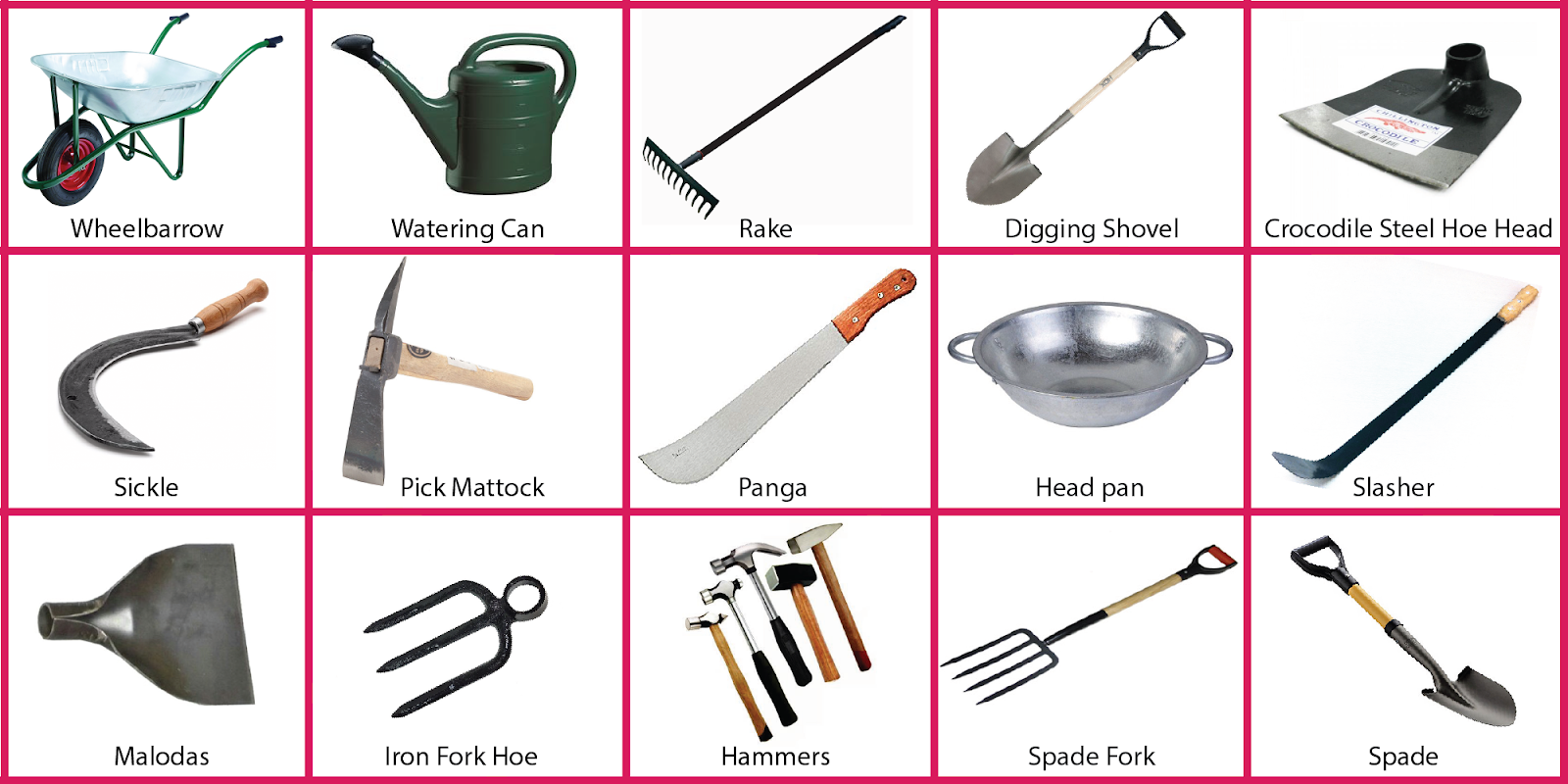Essential Farming Tools: A Comprehensive Guide For Every Farmer
Farming tools are essential for anyone looking to cultivate land, raise livestock, or produce food efficiently. In today's modern agriculture, the right tools can make a significant difference in productivity and sustainability. From hand tools to advanced machinery, understanding the variety of farming tools available is crucial for both novice and experienced farmers.
The importance of investing in quality farming tools cannot be overstated. They not only enhance productivity but also reduce labor costs and time. With advancements in technology, farmers now have access to a plethora of tools that can significantly ease their workload and improve crop yields. This article will explore various types of farming tools, their uses, and how they contribute to successful farming operations.
In this comprehensive guide, we will cover everything from hand tools and machinery to innovative farming technologies. Whether you are managing a small garden or a large agricultural enterprise, understanding the right tools for your needs is critical. Let’s dive into the world of farming tools and discover how they can help you achieve your farming goals.
Table of Contents
- 1. Hand Tools
- 2. Power Tools
- 3. Agricultural Machinery
- 4. Smart Farming Tools
- 5. Maintenance of Farming Tools
- 6. Safety Practices
- 7. The Future of Farming Tools
- 8. Conclusion
1. Hand Tools
Hand tools are the backbone of traditional farming. They are versatile, affordable, and do not require any power source. Here are some essential hand tools that every farmer should have:
- Shovel: Used for digging, lifting, and moving soil or other materials.
- Hoe: Ideal for shaping soil, removing weeds, and clearing soil.
- Rake: Used for leveling soil and gathering debris.
- Pruning Shears: Essential for trimming plants and harvesting fruits.
- Hand Tiller: Useful for aerating and loosening soil.
2. Power Tools
Power tools have revolutionized farming by increasing efficiency and reducing labor intensity. Some common power tools include:
- Electric Chainsaw: For cutting trees and large branches.
- Rotary Tiller: Ideal for preparing soil for planting.
- Electric Fence Charger: To keep livestock secure.
Benefits of Using Power Tools
Power tools provide numerous benefits such as:
- Increased Efficiency: They can perform tasks much faster than manual tools.
- Reduced Physical Strain: They help minimize the physical effort needed for heavy tasks.
- Consistent Results: Power tools offer more precise results than hand tools.
3. Agricultural Machinery
Agricultural machinery plays a crucial role in large-scale farming. Here are some types of machinery that are commonly used:
- Tractors: Vital for plowing and tilling fields.
- Harvesters: Used for efficiently gathering crops.
- Seeders: Essential for planting seeds at the right depth and spacing.
Choosing the Right Machinery
When selecting agricultural machinery, consider the following factors:
- Size of Farm: Larger farms may require more extensive machinery.
- Types of Crops: Different crops may need specialized equipment.
- Budget: Always assess your financial capacity before making a purchase.
4. Smart Farming Tools
Smart farming tools are becoming increasingly popular due to advancements in technology. These tools help farmers utilize data for better decision-making. Examples include:
- Soil Sensors: Measure moisture levels and nutrient content.
- Drones: Used for monitoring crop health and assessing land.
- Farm Management Software: Helps in planning and managing farm operations.
Impact of Smart Farming Tools
Smart farming tools have a significant impact on:
- Increased Yields: Data-driven decisions lead to better crop management.
- Resource Efficiency: Optimal use of water, fertilizers, and pesticides.
- Cost Reduction: Reduced waste and improved operational efficiency.
5. Maintenance of Farming Tools
Proper maintenance of farming tools is essential for ensuring their longevity and efficiency. Here are some maintenance tips:
- Regular Cleaning: Keep tools free from dirt and debris.
- Sharpening: Regularly sharpen blades and cutting edges.
- Storage: Store tools in a dry place to prevent rust.
6. Safety Practices
Safety is paramount when using farming tools. Here are some essential safety practices:
- Wear Protective Gear: Use gloves, goggles, and boots.
- Follow Operating Instructions: Always read the manual before using machinery.
- Be Aware of Surroundings: Keep the work area clear and organized.
7. The Future of Farming Tools
The future of farming tools looks promising with continuous advancements in technology. Innovations such as robotics, AI, and sustainable materials are setting the stage for the next generation of farming tools. These developments will further enhance productivity and sustainability in agriculture.
8. Conclusion
In conclusion, understanding the essential farming tools and their applications is crucial for effective agricultural practices. From hand tools to smart farming technologies, each tool plays a vital role in the farming process. By investing in the right tools, farmers can improve their productivity, efficiency, and sustainability.
We encourage you to explore these tools further and share your experiences or questions in the comments below. Don't forget to share this article with fellow farmers and visit our website for more insightful articles on farming.
Thank you for reading, and we look forward to seeing you again!
Good Morning Message: The Power Of Positive Start
Exploring The Life And Career Of Priscilla Ojo: A Rising Star In The Entertainment Industry
Dr. Nowzaradan: The Journey Of A Renowned Bariatric Surgeon


![Best Farm Tools and Their Uses with Pictures [Updated] Legit.ng](https://i2.wp.com/netstorage-legit.akamaized.net/images/41849d627f577639.jpg)